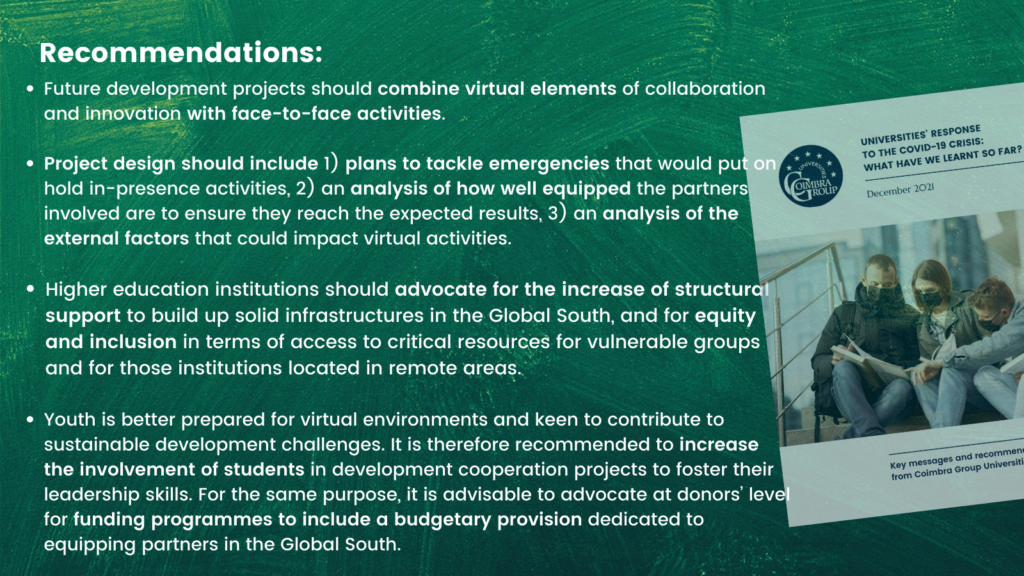Foster leadership skills of youth, says Coimbra Group Development Cooperation Working Group on the occasion of EU-Africa Summit
23 February 2022
The sixth European Union – African Union Summit took place in Brussels on 17-18 February 2022. It was preceded by a series of events organised by international organisations and umbrella associations within the framework of the Africa EU Week.
The European Union and Africa will work together to tackle common challenges. This can be possible through massive investments in infrastructure as well as investments in people. More specifically, the EU and its 27 Member States will invest at least €150 billion in Africa to:
- accelerate green & digital transitions
- boost sustainable growth & jobs
- strengthen health systems
- improve education & training for all
Youth involvement has been flagged as a crucial component of this strategy. This aligns with the latest recommendations from the Coimbra Group on students’ and youth’s role in international cooperation, as outlined in the report “Universities’ response to the Covid-19 crisis: What have we learnt so far? Key messages and recommendations from Coimbra Group Universities”. In analysing the feedback collected from Coimbra Group universities in the second half of 2021, the good practices shared have highlighted that youth is better prepared for virtual environments and keen to contribute to sustainable development challenges. It is for this reason that the report recommends to further increase the involvement of students in development cooperation projects in order to foster their leadership skills. For the same purpose, it is advisable to advocate at donors’ level for funding programmes to include a budgetary provision specifically dedicated to equipping partners in the Global South (when applicable) so as to enable them to be fully operational in virtual environments.
This chapter of the report, which was written by some of the members of the Development Cooperation Working Group of the Coimbra Group – Julien Bobineau (University of Würzburg), Filippo Sartor and Livia Mercatelli (University of Bologna) – makes the following additional suggestions to higher education practitioners and policymakers, regarding the design and budgeting of projects:
- The pandemic has brought a tremendous change in the use of digital technologies and virtual environments within capacity building and cooperation for development projects. Considering the positive effects of this change, it is desirable to design future development projects combining, in a balanced way, collaborative and innovative virtual components in between face-to-face activities.
- Project design should include, simultaneously, 1) contingency plans to promptly tackle those emergencies that would put on hold in-presence activities, 2) an accurate analysis of how well equipped the partners involved are to ensure they are able to reach the expected results while operating within virtual environments, 3) an analysis of the external factors that are likely to impact virtual activities.
- In order to promote effectiveness and efficiency of the use of digital technologies and virtual environments within projects and sustainable inclusive development, higher education institutions should advocate for the increase of structural support to build up solid infrastructures in the Global South (e.g. internet connection as per coverage and costs, electricity networks, etc.), and for the promotion of equity and inclusion in terms of access to critical resources for vulnerable groups and for those institutions located in remote areas.



